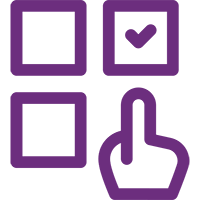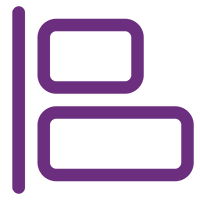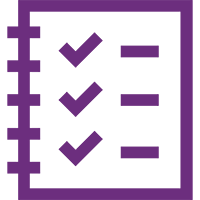We know that diversity, equity and inclusion needs span a vast range: executive coaching for your DEI leaders and DEI allies, coaching others on sensitive topics including DEI issues, and even training for your wider population on how your company approaches diversity, equity and inclusion. We have you covered on all those fronts, and crucially, we have a variety of DEI coaches who can deeply understand the needs and challenges of your employees around these issues.
Our diverse and expert coaches can support the leaders who are grappling with their own experience or those of other DEI employees, provide training in DEI issues for allies and others, or integrate topics of diversity and inclusion into the coaching of employees for whom this is a new conversation.
Challenging coaching calls for those with the compassion and expertise to handle to conversation.

Coaching for DEI Leaders and Allies
Expert, Certified, Diverse Coaches

We coach in the Diversity, Equity and Inclusion Space:
Senior leaders
DEI allies
Group programs that include DEI topics
Workshops on Equity and Inclusion
Keynotes on Ally-ship
Certified, experienced, diverse coaches
Our DEI Coaching Philosophy: Insight + Action = Results
Coach Selection Process
In order to deliver the most value to our clients and their companies, we believe that it’s critical that an executive chooses a coach whose style matches their personality—that’s why we encourage our clients to interview up to three of our coaches to guarantee the best fit.
Diverse, Experienced Coaches
Real Results
Convenience and Flexibility
The Arden Difference
The Power of the Arden Process

Selection
First things first: we set up an initial conversation to help determine the appropriate program for the executive, as well as set up interviews with the three coaches that are the best fit for their needs and goals. In this stage, we are looking to match the executive’s style with that of the coach to create a coaching relationship that delivers maximum results.

Alignment
At the start of each engagement, the coach, the executive, and their supervisor meet to determine the goals of the coaching. Because all of our executive coaching programs are results-driven, it’s critical to set appropriate goals and ensure that the executive, the supervisor, and the company can all realize the benefits of the coaching.

Assessment
When an executive enrolls in a program with the intent to change, measuring the ability and skill level at the outset is a critical first step in setting goals and building a plan to reach them. The coach will select from an array of assessments to select the tools best suited to help the executive gain insight into their unique style and potential areas for growth.

Work the Plan
With feedback from colleagues and a personalized development plan in place, the executive and the coach work through the strategy. They meet regularly to discuss challenges, best practices, and successes, with the coach helping the executive identify and understand their patterns, as well as focus on opportunities for improvement. At the midpoint of the partnership, we once again assess the executive’s progress through a meeting with their supervisor and course-correct, if needed. At the conclusion of the engagement, the executive, supervisor, and coach review the progress and identify any next steps necessary to continue the executive’s growth to ensure a long-term shift in behavior.
Executive Coaching and Leadership Blogs
3 Questions to Ask Yourself About Your Goals
By Julianna Hynes, PhD, PCC My daughter Joi, a high school senior, is an aspiring entrepreneur. She's talked about having her own business in the beauty industry since she could speak. She's drafted...
Communicating Your New Strategy: Are You Flying at the Right Altitude?
In our experience as executive coaches, many CEOs and C-Level leaders express frustration about their organization’s strategic vision — especially when new directions are developed. Not that they...
Learning From Breakdowns
By Neal Eisenstein, M.B.A., MCC When leaders are unable to follow through on a goal, fail to meet a deadline, deliver a project that does not meet expectations, or fail to meet a reasonable ask, one...
The Benefits of Using the SBI Feedback Model
Corey was excited to speak with Lindsey over coffee in the employee lounge of their IT company. Corey was a fairly new manager and Lindsey was a successful, well-respected leader. Lindsey had...
Who, Me?… Not Open to Others’ Ideas?
By Linda Bodnar, Ph.D., PCC It’s not uncommon for the leaders I am coaching to get feedback that they aren’t open to others’ views, ideas, perspectives, etc. It’s also not uncommon for those leaders...
3 Wellness Hacks to Improve Your Productivity
Not all productivity improvements come from being a to-do list super-user, setting brilliant strategic goals, or managing your time with the precision of an Olympic swimmer. Many behaviors and...
The Challenges and Discomfort of “Becoming”
By Sandra M. Martínez, Ph.D. PCC In my coaching sessions with leaders, they sometimes describe a persistent doubt, a fear they will be exposed as a fraud, or a deep sense of discomfort when others...
Effective Organizations Require Psychological Safety
Connor, the VP of Human Resources at a busy financial services firm, saw trouble brewing. After several years of steady business, the firm was growing at a rapid pace. Connor made many new hires...
In Times of Uncertainty, 3 Simple Habits Separate the Best Leaders
By José Morales, MBA, PCC. Good leaders in times of uncertainty make time to pause, reflect, and communicate. Sounds simple enough. Yet through my years of consulting and coaching, I’ve seen that,...









